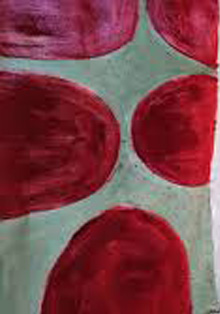Miguel Ángel Medina
Deputy Director of the Antoni de Montserrat Chair of World Studies at the Universitat Abat Oliba CEU
Turkey is one of those countries whose gaze towards the rest of the world is studied in geopolitics as a paradigmatic example of multidimensional, multifaceted and geographically diverse foreign policy. Rising from the ashes of the former Ottoman Empire, the modern Republic of Turkey founded under the auspices of Kemalism has based its foreign relations on the famous motto ‘Peace at home, peace in the world’, in the light of different backbone principles: secularism, humanitarianism, Atlanticism, Europeanism… Throughout these almost one hundred years Ankara has consolidated itself as a medium-sized power of transcontinental scope, due to its geographic location, as strategic as it is volatile. Thus, the Eurasian country (although this definition is controversial to a certain extent) is the fifth diplomatic and consular power in the world, is a member of the major international forums and institutions, participates as a mediator in various multilateral conflict resolution initiatives, is among the largest donors of humanitarian assistance globally… And not to mention that Turkey is one of the few countries with which both Israel and the Arab countries have maintained close diplomatic relations, which is not to be underestimated. Many analysts had described Turkey’s foreign relations as the clearest example of ‘enterprising diplomacy’.
However, in recent years it seems that Turkish foreign policy has taken a different path, and this is largely due to the personalism of the current President of the Republic, Recep Tayyip Erdogan. After winning the elections and becoming President of the Government at the beginning of the 21st century, Erdogan led Turkey into a modernizing process with a view to integration into the European Union, with a very extensive reform program and under the prism of moderate Islamism. This pragmatism was also evident in foreign policy, where the conflict and aggressiveness of Turkey’s foreign policy in the 1990s gave way to a more consensual diplomacy with its neighborhood and with economic, humanitarian and socio-cultural aspects. Why do we say that Turkey has turned a corner in its foreign policy and that neo-Ottomanism now permeates Ankara’s diplomacy? Why do we speak of the return of the Sultan? Let us point out three aspects in this regard.
First, Erdogan has made the personalization of foreign policy an art, a way of governing, a management style, which mixes large doses of populism with a tactical and strategic exploitation of the context in which we find ourselves. Erdogan has strengthened personal ties with his Chinese and Russian counterparts, which is no mean feat, and the Turkish Foreign Ministry apparatus is giving way to the president’s personal team when it comes to outlining the what and how of Turkish diplomacy.
Secondly, Turkey has broadened its range of diplomatic relations and has done so by looking southward and eastward, seeking to expand its influence in sub-Saharan Africa and the Mashrek, as well as to strengthen cultural ties with the Turkic republics of the Caucasus, the Caspian and Central Asia. Turkey wants to regrow old laurels, and here the historical argument and the cultural and linguistic argument are used in equal measure.
Thirdly, Turkey intends to look on an equal footing with Washington and Brussels, and to some extent it intends to go beyond that geopolitical characteristic that Turkey has always had since the end of the Second World War, that of being NATO’s southern flank. Ankara wants to show that it has more power than it really has according to a manual of political geography and history, and this may take its toll in the long run.
Only time will tell what Turkey and what foreign policy we will encounter in the coming years, but we will certainly always have to start by considering the following: modern Turkey has always been, and has always felt, a very strong player in a very weak regional context, and it is this lever from which it wields its diplomacy. We will remain vigilant.
© All rights reserved






